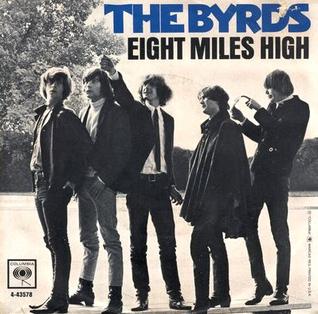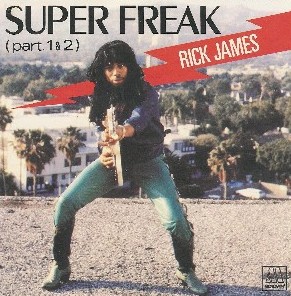Song: "Slum Goddess"
Album: The First Fugs Album
Year: 1965
CLICK HERE TO LISTEN (will open in new tab)
Though many think it to be a more recent trend within the world of music, the fact of the matter is that all throughout history, there have always been a small handful of bands that were so popular across the planet that they cast a massive shadow over nearly any other group attempting to bring about a new sound. During the middle of the 1960's, the bands that cast such a shadow now stand as some of the most famous in all of music history, and yet once one digs a bit beneath the presence of these groups, it is almost shocking to hear some of the elements that were already in existence within recorded music. Though it is thought to be an "invention" of the final years of the decade in question, one can find some of the most stunning "experimental" music ever recorded within the catalog of the New York City band, The Fugs. In many ways serving as the earliest definition of what the East Village stood for in a musical sense, the band fused together countless different styles, all the time showing a very purposeful disregard for acceptable standards in terms of both music and lyrics. This reality quickly earned them the ire of many labels and "parent groups," but at the same time it garnered the band a dedicated following. Each of the bands' early records is a musical landmark on its own, but it is their aptly titled debut, The Fugs First Album, that shines as their finest. Each track on the record shows a different side of the band, and there may be no better a definition of everything that makes The Fugs so brilliant than their 1965 song, "Slum Goddess."
When one looks at the overall catalog of The Fugs, it is impossible to sum up their sound in a single song, and yet "Slum Goddess" gives the finest representation of their clear musical talent, as well as their unique approach to sonic structure. So many different musical influences are at play throughout the track, as one can hear everything from folk to pop to "art rock" all integrated seamlessly into this unique musical structure. A number of the elements that one can experience on "Slum Goddess" make it the clear precursor to the entire punk and "experimental" sound, as the bands' clear mission to completely ignore all of the norms of the time works perfectly all throughout the song. The tone within the guitar is like nothing else that was being played at the time, as there is a dry, "twangy" sound to it that brings a rather country-western feel to "Slum Goddess." However, this same instrument sounds almost broken in some areas, and this gives the song an edge unlike anything found elsewhere, and in many ways, this tone and mood is the very definition of The Fugs. The way that both the lead guitar and bass are able to make the song sway from side to side is absolutely fantastic, almost "daring" the listener to try and resist its appeal, and the fact that such a hook can exist within as unconventional an arrangement as one finds on "Slum Goddess" is in many ways the most clear marker of the beginning of the "experimental" music movement.
Yet it is also within the vocals and lyrics that one can hear the essence of The Fugs on "Slum Goddess," as John Anderson rarely sounded better than he does on this track. While at first listen, the singing here may not seem all that unique, when one considers that the recording is from 1965, there is no question that Anderson's detached, almost disinterested approach was quite far ahead of its time. For this reason, the vocals on "Slum Goddess" can be seen as one of the most important building blocks in the "art rock" and punk rock movements, as one can hear this approach copied all across the catalogs of many later legendary bands. Yet it is also the defiant attitude that comes with Anderson's vocals that makes "Slum Goddess" so fantastic, as even while he is singing of what seems to be a rather unwholesome woman, not only is he ok with it, but he is proud of their exploits. It is within the lyrics that Anderson paints a rather vivid portrait, and the scenes he creates are the very essence of the image that remains with the East Village of New York City. From the constant references to their seemingly deviant sexual encounters to the general vibe he builds around this woman, there is no question the song would be a bit racy by today's standards, and the fact that such lyrics emerged well before they were remotely acceptable makes "Slum Goddess" an even more important song in the development of all musical forms.
There is simply no arguing that both musically and lyrically, The Fugs were many years ahead of their time; and yet they remain relatively unknown in the overall history of recorded music. Perhaps because they hit their musical apex at the same time as the "British Invasion," or perhaps due to the fact that society as a whole was simply not ready for their revolutionary musical approaches, the band stands as one of the "hidden treasures" of the music scene of the 1960's. The way in which they blended together so many different styles to create an eccentric, almost wild new sound can be seen as one of the cornerstones of what would become the "psychedelic" sound, and one can easily make the case that without the songs of The Fugs, such later sounds would not have developed. Along with this wonderfully creative music, there were few vocalists at the time that sounded like John Anderson, and it is his style that has been copied countless times over the past four decades. However, once one hears Anderson's style, it is not only clear that he was one of the innovators of such singing, but that he manages to sound completely unique in his approach. The fact that The Fugs were able to create a sound that even all these years later can still stand on its own is a testament to their exceptional talents, and there are few songs in their catalog that are more definitive or historically important than their 1965 track, "Slum Goddess."














